While Mailtrap is known for testing, sending, and managing emails, we will check if it’s a good solution for verifying large lists or ensuring deliverability.
As this guide dives into the realm of email validation, we will also focus on the best Mailtrap alternatives (13 of them!), with Bouncer leading the pack.
Ready to start?
TL;DR
- Mailtrap is solid for testing and sending emails, but it’s not built to verify big lists or keep your sender reputation safe on its own.
- If your main goal is accurate email validation and lower bounce rates, dedicated tools like Bouncer, NeverBounce, ZeroBounce, Kickbox, and others in this list will do a better job.
- Bouncer stands out as the top Mailtrap alternative for list cleaning thanks to its accuracy, pricing, data security, and easy integrations with popular email and marketing tools.
What is Mailtrap?
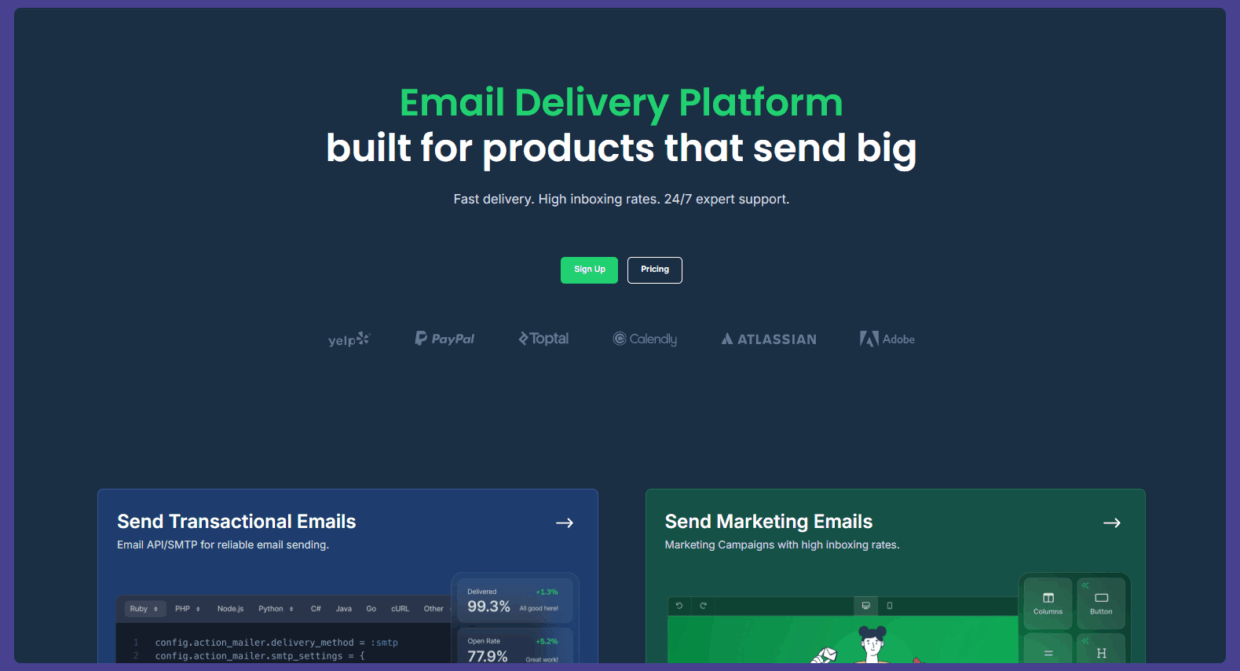
Mailtrap.io is an email delivery platform created for product companies, particularly those that send a high volume of emails. It allows users to send different types of emails, including transactional and marketing emails, and integrates through RESTful API or SMTP.
The platform focuses on helping companies scale their email sending operations efficiently and securely, minimizing deliverability risks. It also helps lower spam score, spam complaints, protect your sender reputation, and in general, stay out of the spam folder.
Need for Mailtrap alternatives
While Mailtrap serves many well, various factors may lead users to seek alternatives. Understanding these factors is vital in selecting the right tool that caters to unique requirements:
- Feature limitations: Some users might need deeper features for email verification and validation, not for email marketing in general.
- Pricing concerns: Cost can be a deciding factor, especially for smaller businesses or individual users.
- Integration ease: The ease of integration with an existing mail server or system is vital as well. For example, this may not be the best tool for non-technical users who want to connect their email service with other tools simply.
- Accuracy expectations: Higher accuracy in email validation can be a priority for a reason. After all, you don’t want high bounce rates.
- Customized support: Tailored customer support is also desirable. When you send outbound emails and use email marketing services, you may have the basics down for your email accounts – but you may need help with some verification services.

The best Mailtrap alternatives
So, if Mailtrap is not efficient anymore for you, let’s check this wide array of Mailtrap alternatives. Each tool has its unique set of features. Let’s explore these alternatives in detail:
1. Bouncer
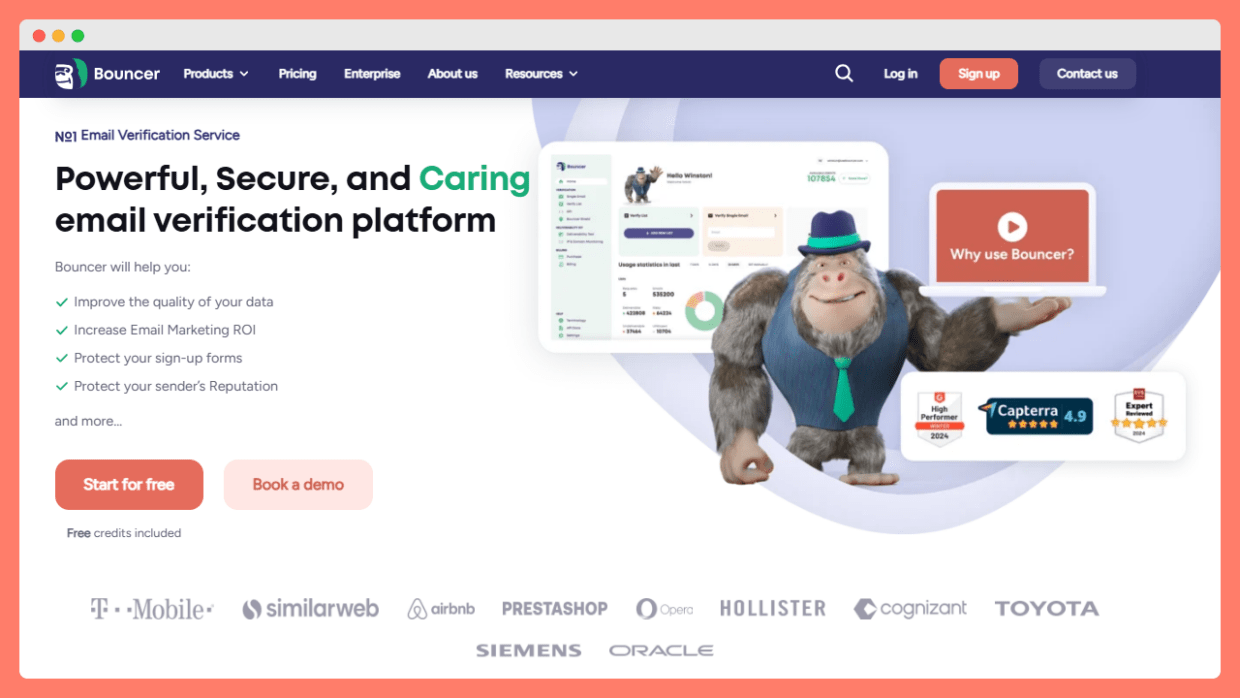
Bouncer stands out as an email validation leader. It emphasizes accuracy and integration, as well as robust analytics, and safeguards your email deliverability. It caters to a wide variety of users who need to lower their spam complaints.
Features:
Both paid and free, and free trial as well. You will find here comprehensive real-time email validation, bulk email verification, email verification API, bouncer shield, Bouncer AutoClean, toxicity checking, data enrichment, and deliverability kit – that’s all for you!
Bouncer’s integration with various platforms enhances its usability. Its emphasis on security adds further value and the spam tests warrant error free emails and campaigns. You also get ready-made integrations with apps such as Mailchimp, ensuring actionable insights and robust service throughout your campaigns.
Pricing:
With tailored plans catering to different needs, Bouncer offers a cost-effective solution. Its transparent pricing starts from $8 for 1000 verifications. After signing up you get 100 free verifications.
High-volume senders as well as small companies can all land in the primary inbox with just a few dollars every month. Mailtrap wasn’t really built for smaller teams, so Bouncer comes to help.
Pros and Cons:
Bouncer’s customer service is remarkable, and its user-friendly interface enhances productivity. The drawbacks of this platform? You need to buy the Deliverability kit and the Bouncer shield separately. And you may need help with using the API, on which we can help after all!
2. NeverBounce

NeverBounce offers real-time verification but struggles to match Bouncer’s accuracy. While it emphasizes list cleaning, verifying, and automation, its feature set is somewhat limited. NeverBounce’s market presence is strong, but user feedback reflects some shortcomings in terms of achieving the right delivery rates.
Features:
Its list cleaning and email verification are noteworthy. They offer real-time verification, bulk email list cleaning, and automated list cleaning. You can upload your existing list and download a fresh one. They also offer an API; however, you may need help with using it. Thus, you will perhaps need to contact their support, and problems may arise here… According to G2 reviews, users who reached out for support have had some terrible experiences.
Pricing:
The cost structure of NeverBounce might not entirely reflect the value, especially when compared to Bouncer. Yes, various plans are available, both pay-as-you-go rates in Basic Plans and pricing tiers for Sync. But the balance between cost and features is less appealing. For example, for 5,000 credits you need to pay $40 in NeverBounce, and $35 in Bouncer.
Pros and Cons:
NeverBounce has some serious problems with accuracy and reliability. The customer support isn’t also good. Yet, many users praise this tool, so the above problems may be temporary. Still, they can affect your email deliverability.
3. ZeroBounce
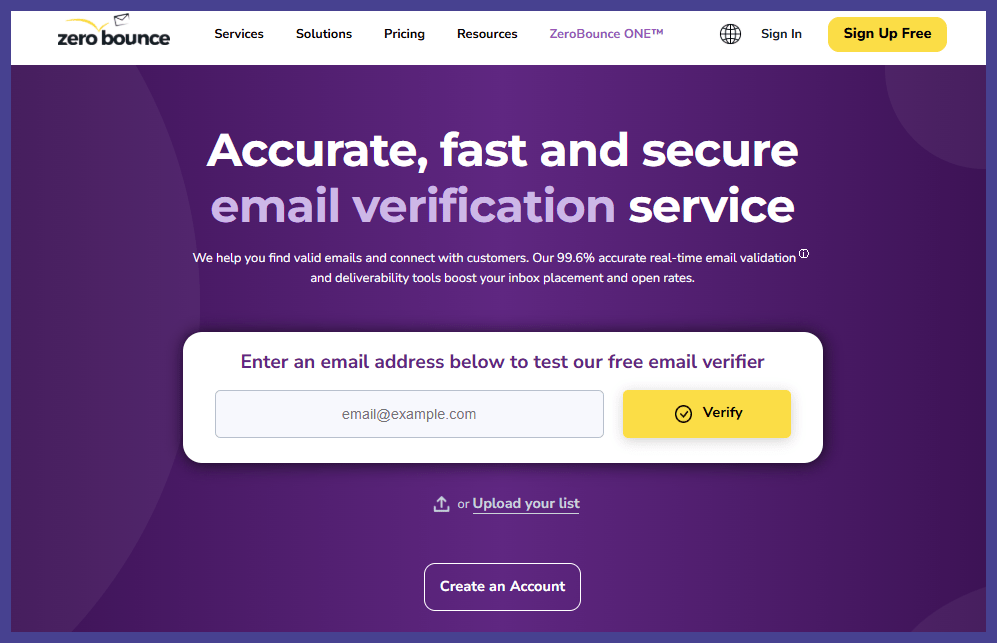
ZeroBounce has many unique offerings. Frankly speaking, it offers quite a lot for email marketing, such as email validation, email activity data, email score, email finder, and options for email deliverability, like DMARC monitoring or blacklist monitoring. And free features? Yes, also here.
However, it may not be suitable for small teams, and hard to learn for non-technical users.
Features:
The feature set is decent, with many options for email marketing, including services for email validation, email deliverability, and API. You can get rid of invalid email addresses, identify issues with disposable emails or catch-all emails, identify more than 30 email types, and block invalid emails with the API.
Pricing:
The cost is a bit higher than for other email validation tools. 2,000 credits is a minimal purchase, and for that amount, you must pay $20 in pay-as-you-go rates. Subscription plans also available.
Pros and Cons:
ZeroBounce’s features are valuable in certain contexts, but may not suit small companies. It’s just may be too much for them. Plus, some users think the UI is outdated.
4. Kickbox
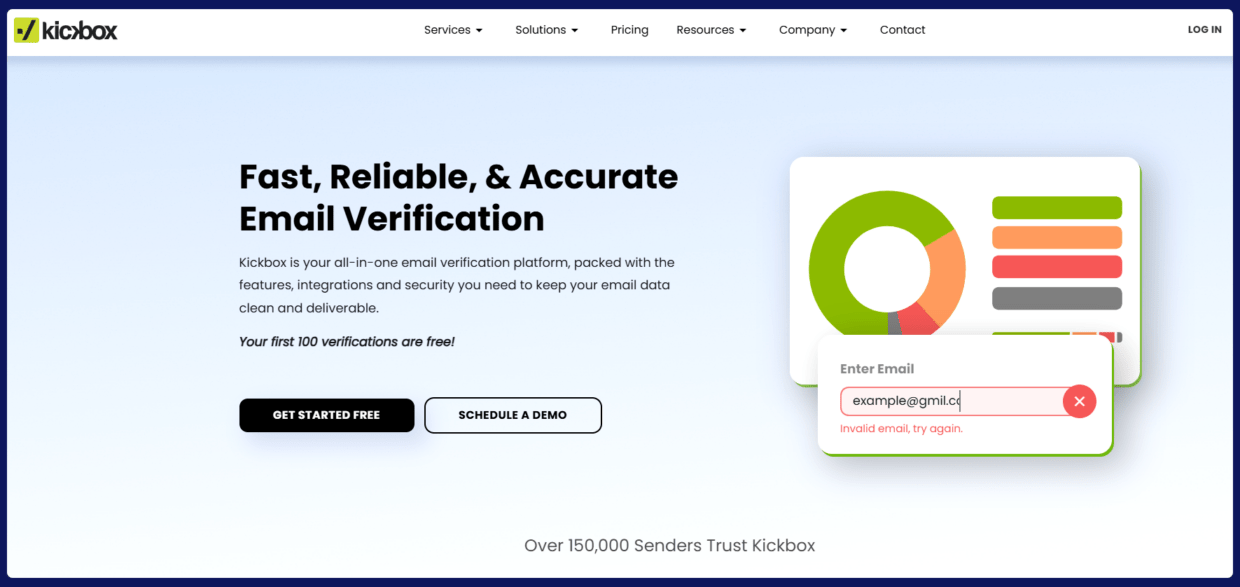
Kickbox offers an email verification service that checks email addresses to determine their validity. It helps identify deliverable, undeliverable, and potentially risky email addresses. It integrates with various email service providers and offers real-time verification via an API. Kickbox claims high accuracy to help users maintain clean email lists, improving deliverability and reducing bounce rates.
Features:
Key features include real-time email verification during purchases, registrations, or contact forms to block fake email addresses and minimize risk. It also offers bulk-list verification with drag-and-drop functionality, an email verification API, and deliverability consulting.
Pricing:
Kickbox’s pricing is based on pay-as-you-go rates. Prices start from $5 for 500 verifications. It’s a little more expensive than Bouncer.
Pros and Cons:
Kickbox has strengths in real-time verification, but lacks deeper features for email verification. It’s a viable option, but doesn’t reach Bouncer’s standards.
5. Hunter.io
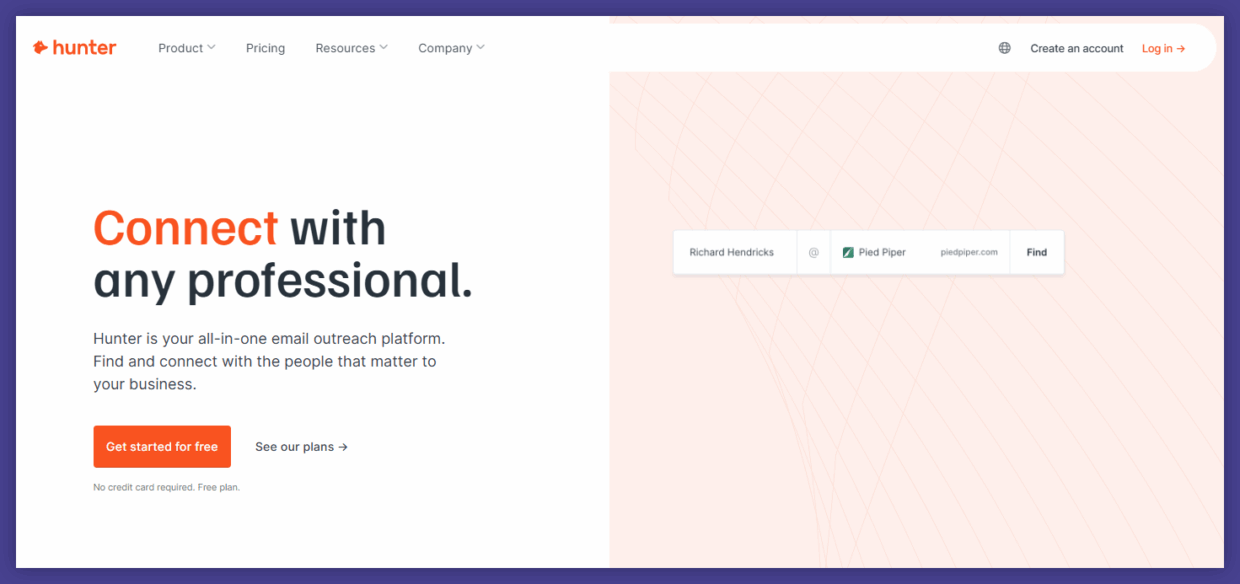
Hunter.io is a lead generation tool primarily used to find and verify professional email addresses associated with a specific domain. It serves as an all-in-one email outreach platform, helping businesses, marketers, and others to connect with relevant individuals for various purposes.
Features:
Top features include, among others, the ability to find email addresses, send cold campaigns, find prospects and B2B leads, and verify email addresses in bulk. The tool also has an API and offers integrations. The platform supports connecting multiple email accounts.
Pricing:
Hunter.io offers a free plan and doesn’t require a credit card for signup. Next, prices start from €34 per month.
Pros and Cons:
Hunter.io seems to be a strong app for finding email addresses and prospects, but when it comes to email verification, it lacks crucial options. Plus, users say they are not satisfied with the working email finder, and after the update, there is less data at their disposal.
6. EmailListVerify
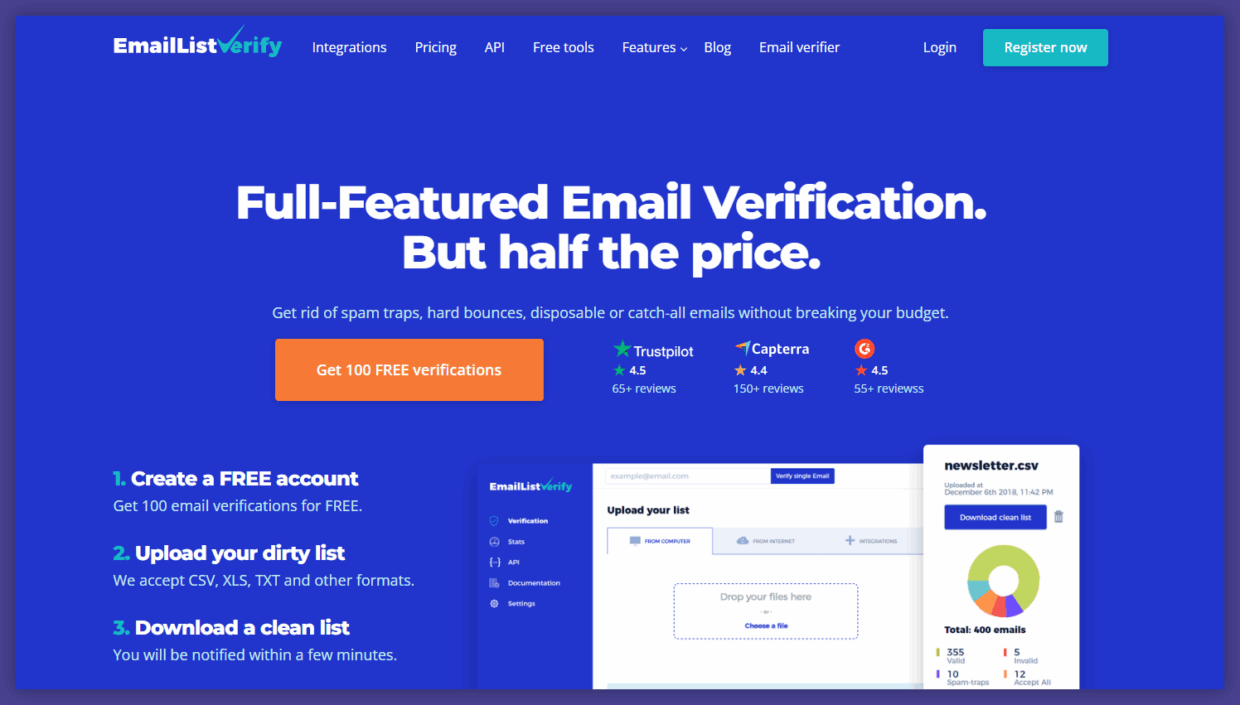
EmailListVerify helps users verify and clean email lists. It offers bulk email verification services and a real-time API to check email addresses for validity, aiming to reduce bounces, spam traps, and disposable emails. This ensures that more messages reach the intended recipients.
Features:
EmailListVerify offers features to clean email lists by identifying and removing spam traps, bounces, disposable, or catch-all emails. It validates domains and SMTP servers to ensure email deliverability. It can also remove duplicate email addresses.
Pricing:
When it comes to pricing, it’s quite flexible. It starts from $5 for 1,000 credits, which is really cheap. And there are many pay-as-you-go options. Yet, no subscription plans.
Pros and Cons:
EmailListVerify offers bulk verification but is slower than Bouncer. It’s a useful tool for specific tasks but may lag in overall processing and features.

7. BriteVerify
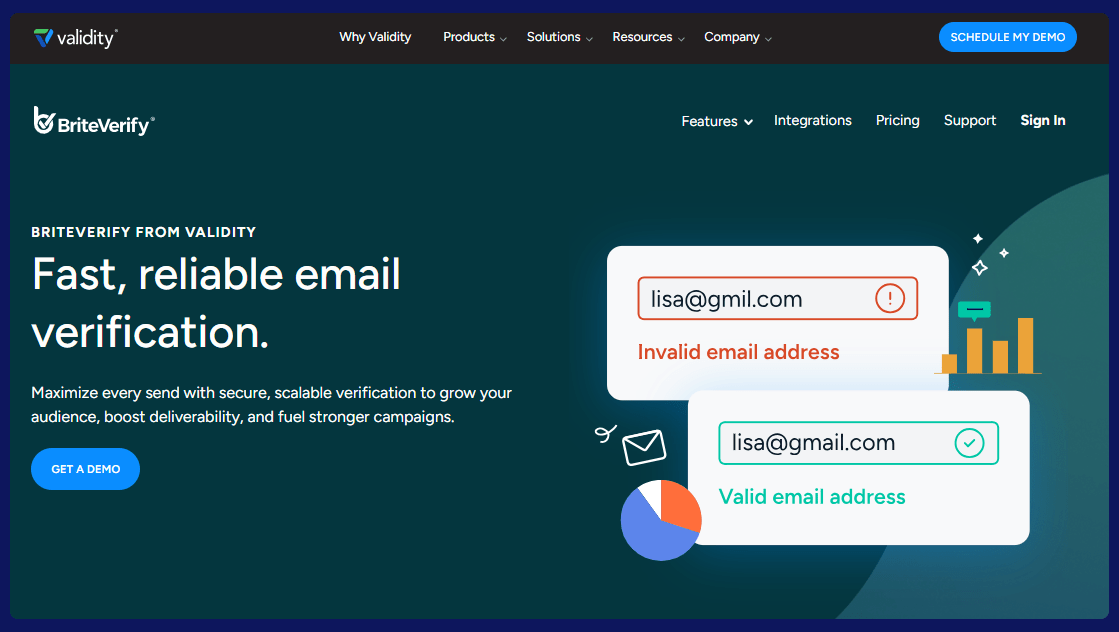
BriteVerify, a product of Validity, is an email verification service that validates email addresses in real-time without sending messages. It uses custom integrations with Mailbox Providers to check if an email address actually exists. It’s one of the industry’s longest-standing contact verification solutions.
Features:
In the key features, you will find options for building and maintaining a clean database, reaching and engaging people, and communicating more effectively. Bulk validation and invalid data prevention are just strong examples.
Pricing:
Validity changed its pricing approach and excluded the pricing tiers from its pages. The exact costs aren’t provided upfront anymore. Potential customers must reach out directly to get the details. The lack of transparency in pricing might put some businesses off.
Pros and Cons:
All in all, Validity products are robust but may be too complex and costly for many users. Its comprehensive features are a strength, but sometimes less is more.
8. Mailgun
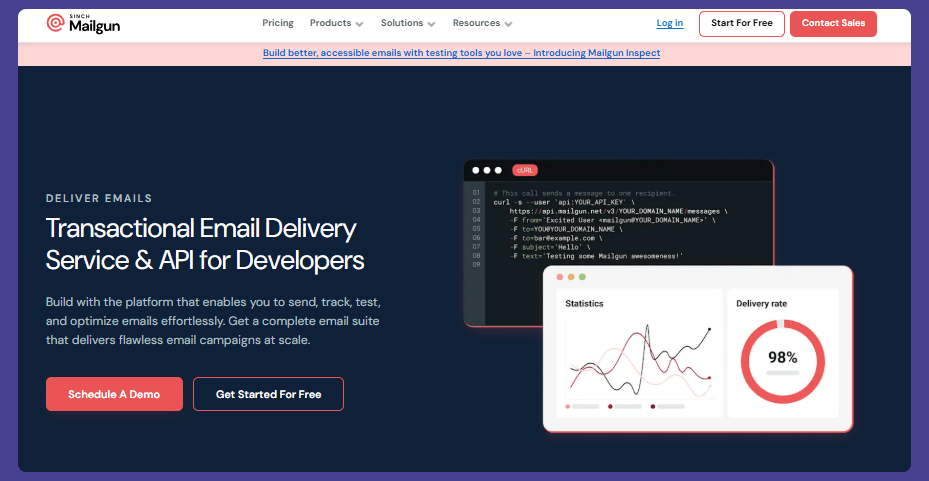
Mailgun is an email delivery service that helps developers and businesses send, receive, and track emails. It streamlines the process of sending emails by handling infrastructure and deliverability concerns. It’s designed for sending, tracking, and optimizing emails.
Features:
Mailgun offers features for sending and delivering emails with high deliverability. Key options include email validation, bulk email capabilities, API integration, email sending, and email optimization. It supports transactional email functionalities like webhooks, dedicated IPs, and notifications.
Pricing:
You can use Mailgun for free with 100 emails daily, so it’s a massive amount for a free account. Next, prices start from $15 per month.
Pros and Cons:
Mailgun’s wide array of email services can be a strength, but its less specialized validation might not suit all users. It offers versatility but may lack targeted validation tools and actionable analytics for your email engine.
9. Brevo
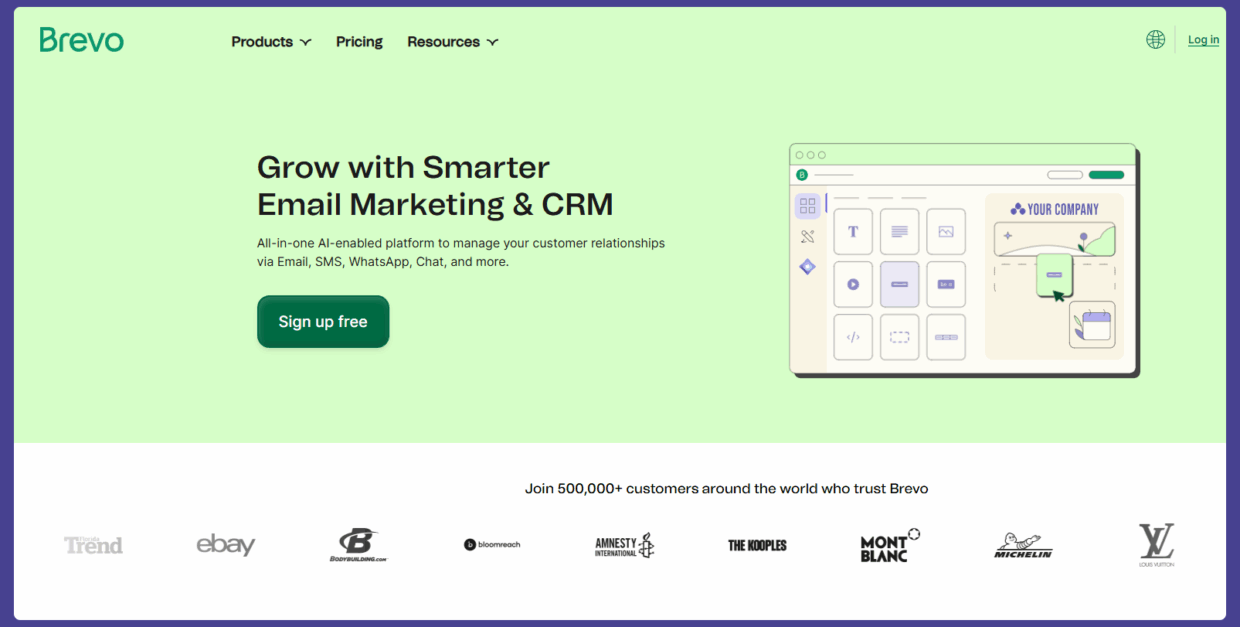
Brevo is an all-in-one marketing communication software suite designed to help businesses grow. It provides tools to manage emails, sales, and customer relationships. Generally speaking, it aims to improve marketing efforts.
Features:
Brevo offers email marketing, customer data platform, marketing automation, and sales platform features. It enables businesses to send emails, SMS messages, web and mobile push, and run automated marketing campaigns.
Pricing:
There are 4 plans at your disposal, including a free one. For monthly pricing, prices start from $9 in the Starter plan. You can also customize your plans.
Pros and Cons:
Brevo’s broad marketing tools may appeal to some, but not those seeking specialized validation. Compared to Bouncer, there is a lack of validation and email deliverability features.
10. Verifalia
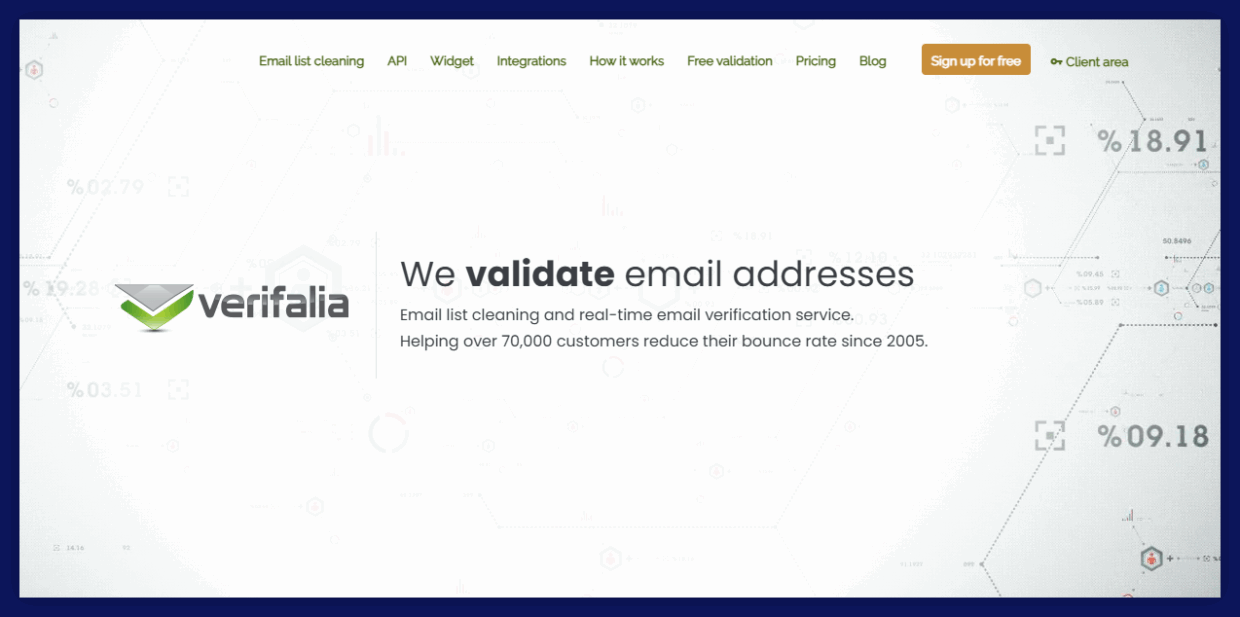
Verifalia is also a web-based email validation service. It verifies email addresses in real-time to identify invalid or undeliverable emails, as well as risky email types like spam traps and role accounts. Users can upload and validate lists of email addresses using it.
Features:
Verifalia offers AI-powered email verification, list cleaning, real-time API, and widgets. With key features including advanced syntax verification, domain and DNS checks, and Mail Exchanger (MX) tests, you can protect your sender reputation. It also provides detailed reports classifying emails as deliverable, undeliverable, risky, or unknown.
Pricing:
Pricing is competitive, starting with $7.90 for 1,000 credits. You can validate up to 10,000,000 emails, but you will pay for it as much as $4,890.
Pros and Cons:
Verifalia’s cheap prices and strengths are notable, but its validation might not be as versatile as you might guess. Even low prices can’t make this tool comprehensive.
11. Snov.io
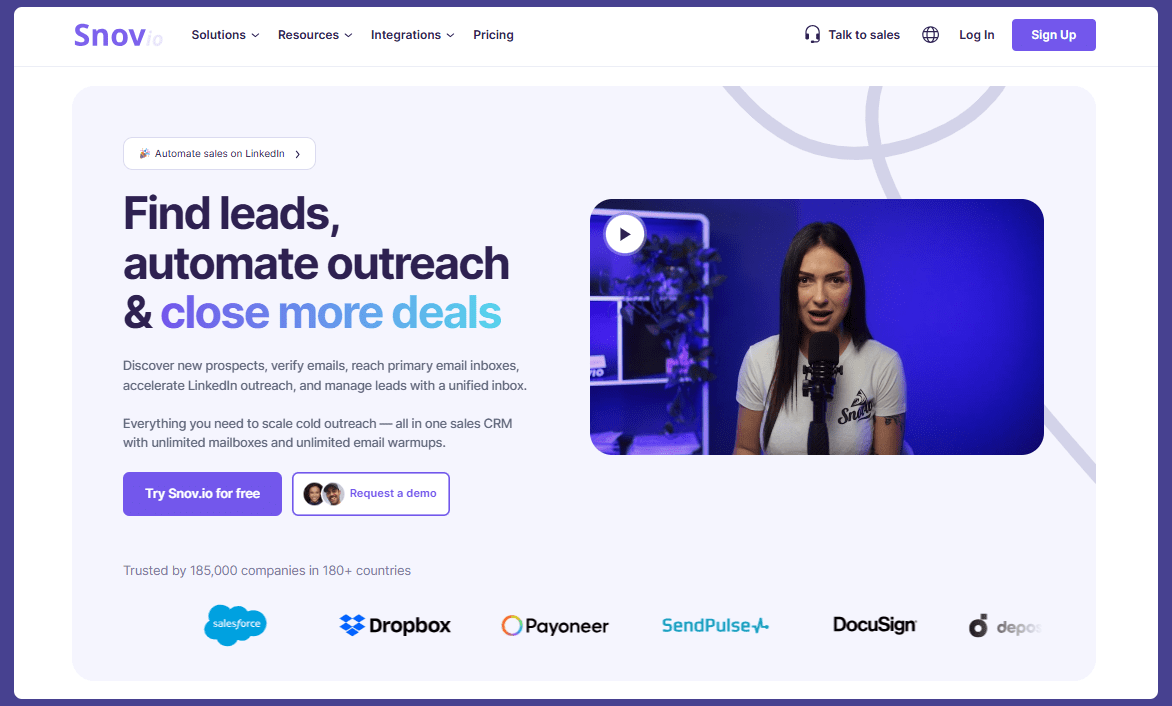
Snov.io is an all-in-one sales platform with email marketing capabilities. It lets you discover new prospects, reach real inboxes, verify emails, and even offers a user-friendly interface that combines various tools into one solution. As a result, you can enhance lead generation and cold email campaigns.
Features:
Snov.io features include: Generate leads, Close deals, Manage sales, and Agency. Besides them, you can use email finder, LinkedIn extension, Email verifier, or Email warm-up, among others. The platform aims to streamline and optimize the sales process through automation and accurate data verification
Pricing:
No pay-as-you-go rates, just subscription plans. But you can use the platform for free, with 50 credits per month. You can customize the Pro plan.
Pros and Cons:
Snov.io‘s versatile tools are a strength, and its validation seems to be quite good. Still, the tool does not provide the same focused value for email verification as Bouncer – a tool that safeguards your email delivery rate.
12. QuickEmailVerification
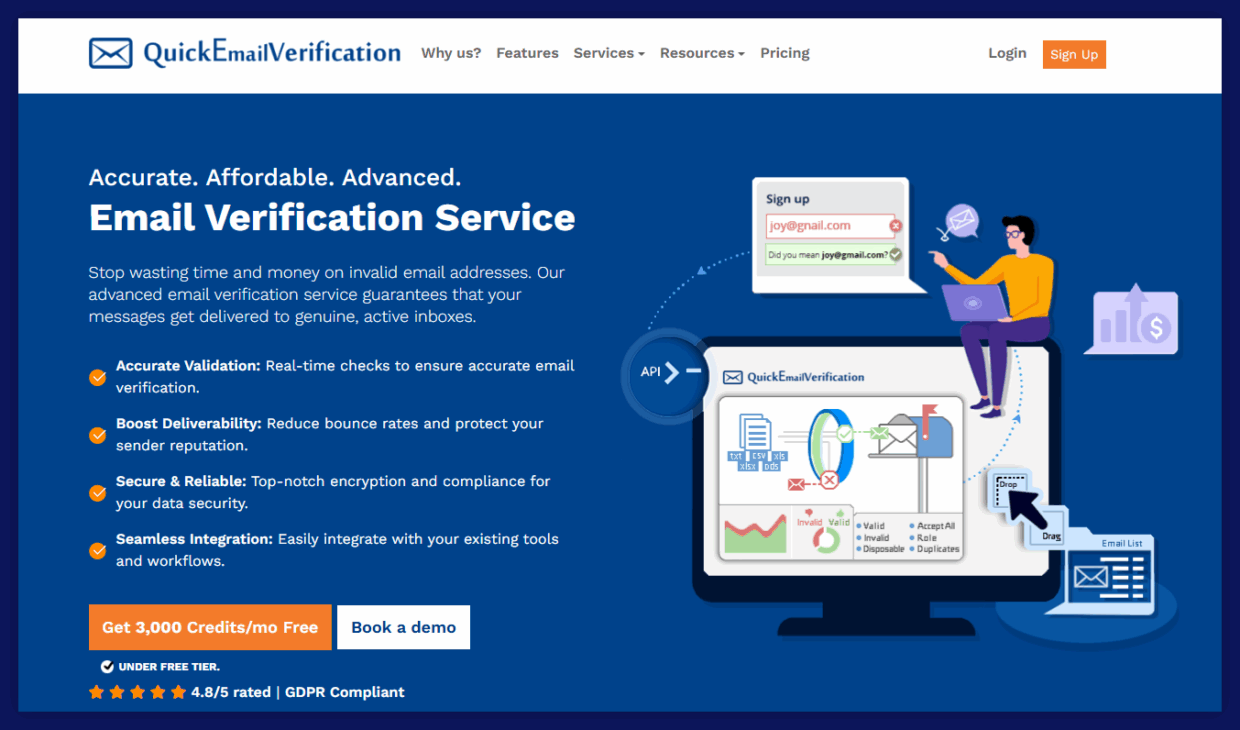
QuickEmailVerification is another online service for cleaning email lists. It helps by verifying addresses in bulk or with real-time verification via API. It aims to ensure emails reach genuine inboxes by identifying invalid addresses, in-depth verification reports, sending recommendations, anti-greylist technology, and more.
Features:
The tool offers a bulk email verifier, an email verification API, integrations, and free tools. You can upload lists in multiple formats, clean them fast, segment them, and get a list quality overview. It’s pretty cool.
Pricing:
You can use QuickEmailVerification for free, try pay-as-you-go rates, or talk to sales for more volume. You will pay $4 for 500 credits, which is quite normal in this industry.
Pros and Cons:
QuickEmailVerification is one of the best email verifiers out there. It’s also affordable and easy to integrate. Yet, their free daily credits are limited, not useful for many. And the pricing can get expensive with big email lists.
13. DeBounce
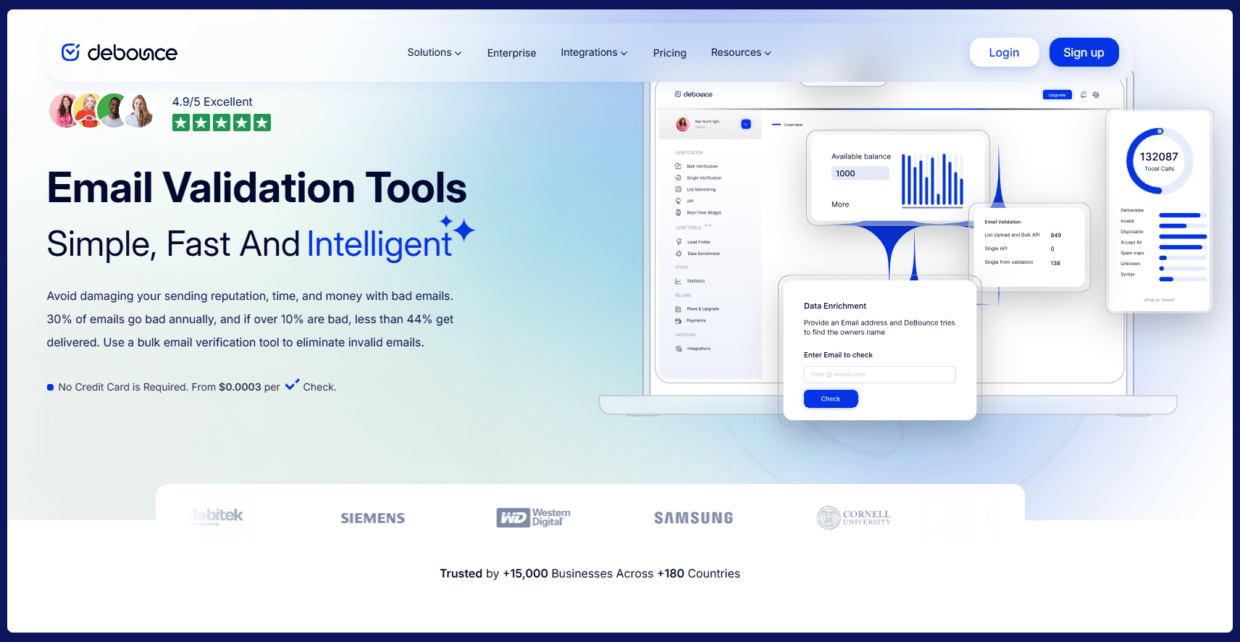
Last, but not leas, we present you to DeBounce. This email verification tool is designed to clean and validate email lists. It helps users maintain the quality of their email campaigns by identifying and removing invalid or problematic email addresses.
Features:
DeBounce offers features like bulk email list validation, email list monitoring, catch-all validator, API, data enrichment, and lead finder. It also integrates with other tools and offers various download options for results.
Pricing:
We can see here different pay-as-you-go rates, in which you can pay $10 for 5,000 verifications. And it’s a really good price. Plus, 100 free credits are available after signing up.
Pros and Cons:
DeBounce’s bulk processing has its followers. Users like this tool but see some drawbacks, like poor customer support or short clean email storage.
Choose the best one among many Mailtrap alternatives
Navigating the vast array of Mailtrap alternatives can be a complex task, but the picture gets clearer after understanding the nuances of pricing, feature set, pros, and cons. Thanks to our list, you will notice that these tools vary from each other.
Among the top alternatives, many tools, including Bouncer, emerge as a standout option and a good alternative, offering a tailored email testing platform, real-time analytics, and a perfect balance of features.
Other alternatives may suit specific requirements, but Bouncer’s strong options for email verification, custom plans, and extensive third-party integrations make it a compelling choice for users ranging from individual developers to large businesses who wish to send inbound emails or use it with other AWS services.
If you want to enhance your email sending capabilities, deliver emails on the spot, explore responsive email templates, or manage application-generated emails, understanding these alternatives can guide you to the perfect solution for your email needs and messages.
Looking for Mailtrap alternatives and the best email deliverability platform there is, with more than a free trial or a nice web interface? So choose Bouncer.
Boost your email campaigns with Bouncer verification.


